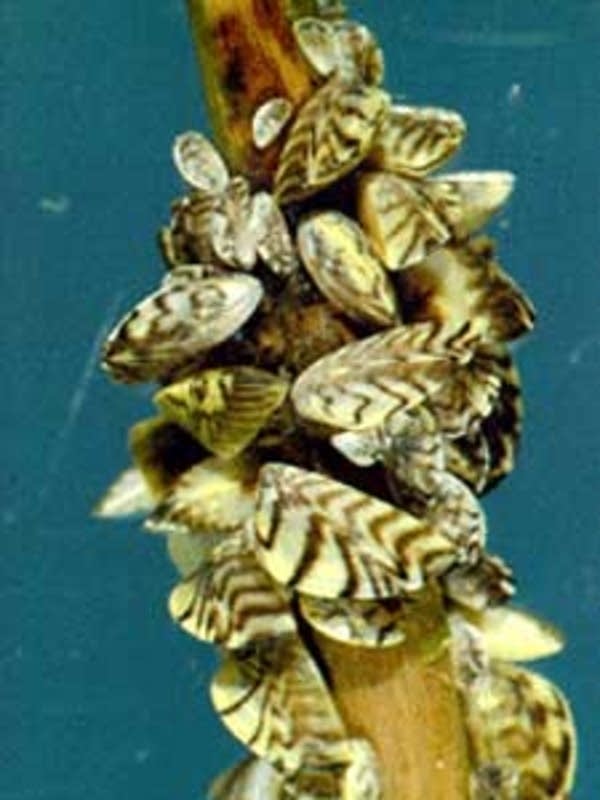Study: Separate Great Lakes, Mississippi basins
Go Deeper.
Create an account or log in to save stories.
Like this?
Thanks for liking this story! We have added it to a list of your favorite stories.

(AP) - Waterways engineered more than a century ago to connect the Great Lakes and Mississippi River watersheds should be altered to stop the exchange of invasive species that can cause irreversible damage, an environmental advocacy group says.
Separating the two basins is the only way to stop the transfer of some species, including the voracious Asian carp that is within 50 miles of Lake Michigan, says a feasibility study being released Wednesday by the Alliance for the Great Lakes.
"If you want to protect the Great Lakes, this is what you have to do. Invaders like Asian carp are unpredictable, but their effects are catastrophic and irreversible," said Joel Brammeier, the Alliance's vice president for policy and lead author of the study. "You've got to remove their pathway."

Researchers fear the carp, which can grow up to 100 pounds and more than 4 feet long, could eat all the food that's available for other species in the Great Lakes ecosystem, possibly leading to the collapse of the lakes' multibillion-dollar fishing industry, Brammeier said.
Turn Up Your Support
MPR News helps you turn down the noise and build shared understanding. Turn up your support for this public resource and keep trusted journalism accessible to all.
Scientists say more than 150 invasive species have entered the Great Lakes, multiplying rapidly and feeding on native species or outcompeting them for food.
Millions of dollars have been spent trying to control the zebra mussel and round goby, which already have moved between the Great Lakes and Mississippi River basins.
Millions also have been spent on electrical barriers across the Chicago Sanitary and Ship Canal south of the city to keep Asian carp out of Lake Michigan. The Alliance says the barriers, which deliver a non-lethal jolt to fish, have been effective, but are not a long-term solution.
There are no natural connections between the Great Lakes and Mississippi River watersheds. More a century ago, engineers linked them with a complex network of manmade canals and existing rivers to reverse the flow of the Chicago River and keep waste from flowing to Lake Michigan, which Chicago uses for drinking water.

Possible changes include erecting concrete walls and constructing more shipping locks, according to the study, which also examines the possible use of chemical repellants and lights.
It does not make explicit recommendations, but calls on the U.S. Army Corps of Engineers and Environmental Protection Agency to conduct further study.
Lynne Whelan, a spokeswoman for the Army Corps in Chicago, said Wednesday that her agency is authorized by the Water Resources Development Act of 2007 to to conduct a wide-ranging study that includes looking at ecological separation of the watersheds, but funding has not been authorized. She would not comment on the Alliance study.
Officials for the EPA said Wednesday that they could not immediately comment because they had not read the study.
The study, funded by the Great Lakes Fishery Commission and Great Lakes Fishery Trust, gives general cost ranges for some projects. The cost of the most complicated, such as installing a sterile lift to transfer barges between the two watersheds, is listed only as "expensive." It does not specify who should pay.
Brammeier said the study was sparked by a 2003 meeting convened by Chicago Mayor Richard Daley and the U.S. Fish & Wildlife Service, where dozens of engineers and experts recommended "hydrologic separation" of the watersheds by 2013.
The six areas identified in the report are a canal at Lockport and Romeoville, the south branch of the Chicago River, the Chicago Lock to Lake Michigan, the Calumet River, the Grand Calumet River and the Little Calumet River.
Although locks could enable shipping to pass while blocking invasive species, any type of barrier would slow traffic, said Stuart Theis, executive director of the United States Great Lakes Shipping Association. Still, he would cautiously support efforts to separate the watersheds.
"We wouldn't object to efforts that would keep invasive species out of the Great Lakes," he said.
(Copyright 2008 by The Associated Press. All Rights Reserved.)




